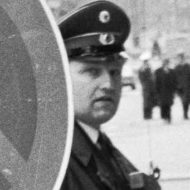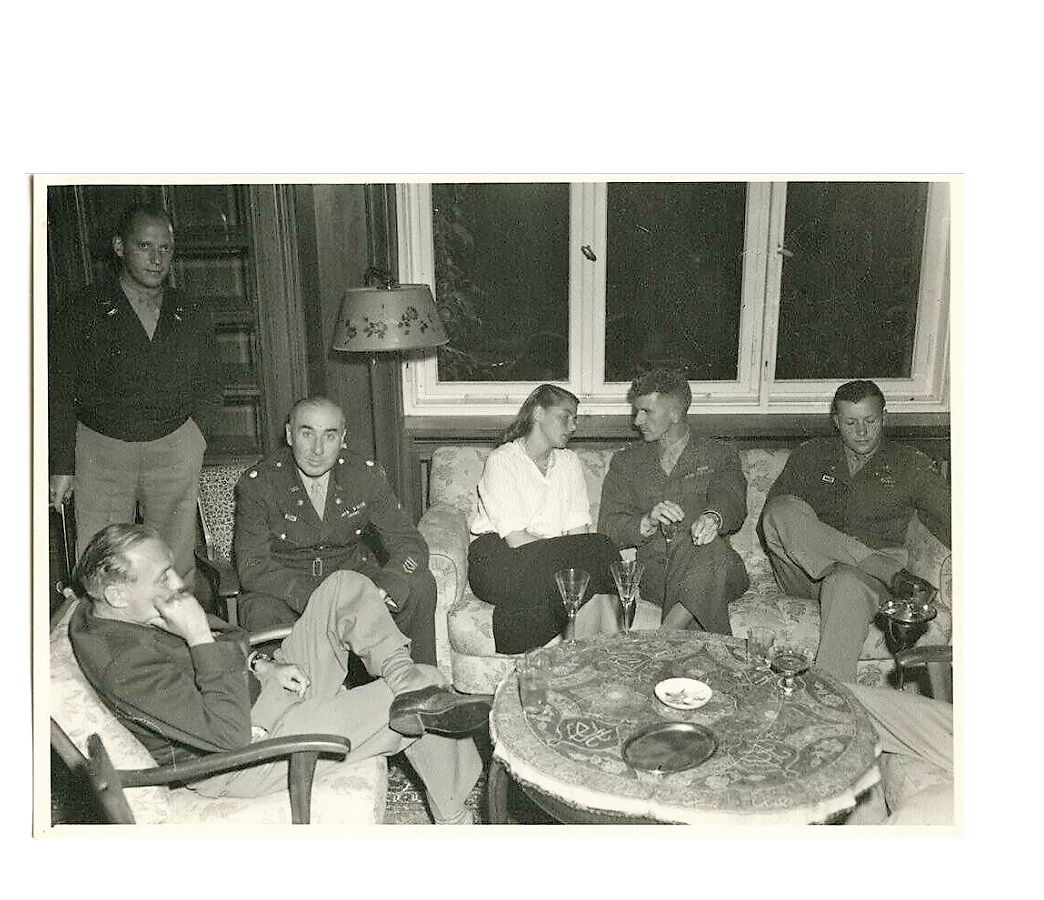A dream in the garden
August 1971 was no exception to the rule that the weather in Berlin for a few days can be golden. In the sun-dappled seclusion of a walled garden where in 1948 the fictional Sean and Ernestine of Leon Uris’ novel had begun their romance at Sven-Hedin-Strasse 11, a young couple was saying their farewells. Thrown together and then dashed apart by the cruel logic of the Cold War, their time in the garden was but a fraction of the century of stories set against the grey bulk of the Zehlendorf-West villa that Americans called a house, but no one called a home.
Michèle, in Berlin to study childcare, but with secrets that led to a security check, tried in French-accented English and German to describe their experience:
“Life is a travel and all places in this world are like so many stations. Nun sind wir in solch einem Bahnhof – Berlin genannt – beide zusammen gewesen und haben ein Weilchen zusammen verbracht. Jetzt sind wir davon beide weg ABER nicht zusammen, wir haben zwei ganz verschiedene Züge genommen. Gegenseitig kein Bild, kein Brief und die Zeit werden immer sehr schnell vergeht.
“Jeder tag ich habe mich unheimlich gefreut, Dich zusehen, und doch weiss ich, dass ich nur ein Traum bin – und sein kann wir haben zu wenig Zeit zusammen verbracht, zu wenig zusammen gemacht.”
Her lips pursed for another sip of the farm-made strawberry wine that his German relatives had given him as a farewell present.
“Dear Robert, the dream of us is only a dream and will stay a dream and it is time for you to be happy in your real life with the real people around you, especially the nicest real woma(e)n you want to see [her French humor surfaced between tears with a wicked grin as she corrected the singular to the plural].”
Or at least that is how Robert remembered it. Stuck with too many secrets, winding up his unexpected stint with an ersatz intelligence operation and ready to go home, now he was faced with the fact that Frenchwomen could be so practical.
“After all,” I consoled him later, “I read Sanche de Gramont’s book and he pointed out that Frenchwomen darn socks instead of buying new ones. You were the new sock.”
But how, I wondered, did an American soldier and a French schoolteacher end up in a Berlin garden? It was garden that included a barbecue for office parties and the German soldier of the U.S. Army’s 6941st Labor Service Battalion on guard duty. The Berliner, in a version of a U.S. Army uniform, had discretely disappeared after admitting the couple. They had passed a Berlin civilian policeman walking his beat on sleepy Sven-Hedin-Strasse. A German putzfrau stared out of the villa’s windows. Always, always they were aware of being watched.
The over-arching trees, the walls that had ears, the pavement stones could tell part of the story that would span a century. No living person then or now can tell it all.
========================================

